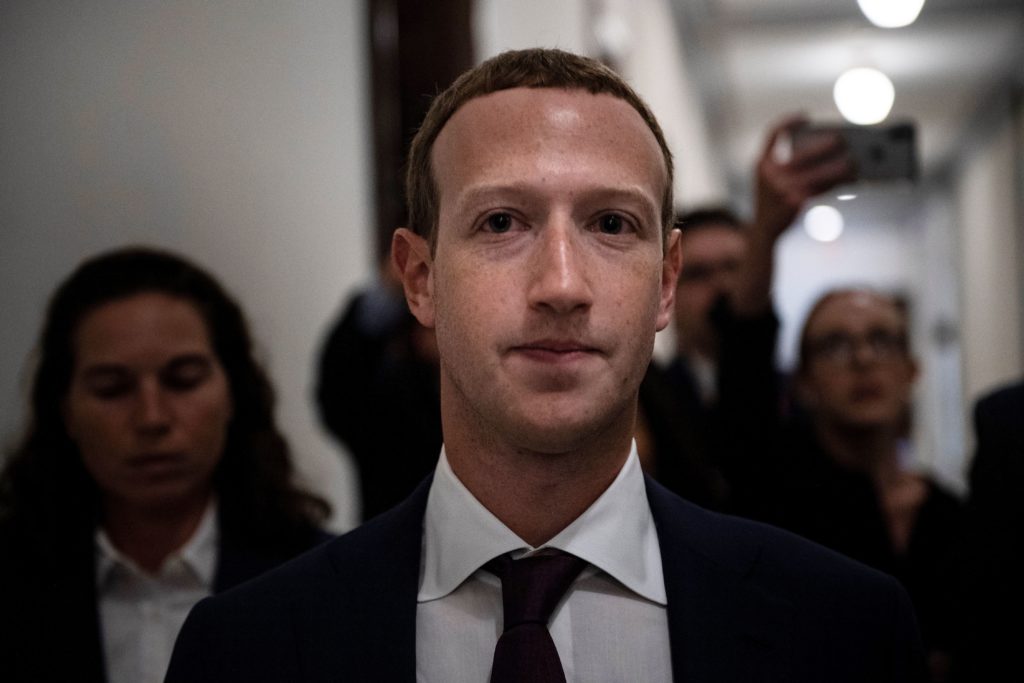 A revolutionary technology innovator is tackling one of the best-known and least tractable problems in financial inclusion, for the benefit of the global poor.A rapacious business monopoly with a history of offering dangerous products is creating an exotic financial instrument that falls in a loosely regulated and systemically important space.
A revolutionary technology innovator is tackling one of the best-known and least tractable problems in financial inclusion, for the benefit of the global poor.A rapacious business monopoly with a history of offering dangerous products is creating an exotic financial instrument that falls in a loosely regulated and systemically important space.
The former narrative is the one Mark Zuckerberg presented to members of the House Financial Services Committee during a hearing yesterday on Facebook’s Libra cryptocurrency and remittance project.The world’s existing financial infrastructure is failing the country’s and the world’s poor, he argued.The tech giant, in concert with other companies and nonprofits, wants to make payments instant and free and borderless.
But that latter narrative is a credible one, too.
Zuckerberg admitted as much during the hearing—or, at least, admitted that he understood the point that the many, many, many, many, many, many critics of the Libra project have made since its unveiling earlier this year.“I believe that this is something that needs to get built.I get I’m not the ideal messenger for this right now,” he said in his opening remarks.“I’m sure there are a lot of people that wish it were anyone but Facebook … There’s a reason we care about this.
That’s because Facebook is about putting power in people’s hands.”
It’s not quite the answer you would expect Zuckerberg to give if he were trying to get people to trust him; Facebook is about soaking up user data to sell to advertisers of various degrees of scrupulousness more than it is about anything else.And with Libra, it—or, technically, the project it kicked off—would also be about offering cheap financial services to help it better compete with companies such as WeChat and to cement its place as the essential digital utility around the world.
Financial inclusion would be a real, if perhaps ancillary, benefit.The Libra project would create a low-volatility, stable-price cryptocurrency.Users of Facebook and other services would be able to buy Libras in their local currency and then ping payments back and forth, fast, cheap, and free.
Libra would help provide bare-bones financial services to the 8.4 million American households who are “unbanked,” or without a bank account, as well as the hundreds of millions more unbanked and underbanked people around the world.It would slash the price of payments processing, which in the United States and other countries acts as a hidden, regressive sales tax.And it would support global remittances—the half a trillion dollars that immigrants send to people in their home countries every year, even as processors take a 7 percent cut, on average.
But Libra is hardly the only way to serve the underbanked, eliminate middlemen, and make remittances fast and cheap.
As Representative Gregory Meeks, a New York Democrat, argued in the hearing, Facebook has not previously shown interest in addressing the needs of financially marginalised communities through, say, non-profit microloan services or postal-banking advocacy groups or minority depository institutions.
“How much of Facebook’s money is helping the underbanked?” he asked Zuckerberg.“Have you invested in development institutions in America or elsewhere in the world? Is any of your money sitting in those banks?,” meaning minority depository institutions.Zuckerberg mumbled his excuses.
Moreover, Libra would address the issues of financial inclusion and the price of moving money in a potentially dangerous and destabilising way.Libra would amount to an all-in-one pseudo-bank, cryptocurrency, payments processor, remittance system, central bank, and foreign exchange.But it wouldn’t quite be any of those things, and thus would fall into a queasy regulatory gray space, in the United States as well as abroad.
The fact that cryptocurrencies are highly attractive to criminals—scammers, gangs and cartels, and so on—was another concern raised in the hearing.“You’re creating a whole new currency, which could be anonymous, that could create a whole new threat to Americans and national security,” argued Democratic Representative Carolyn Maloney of New York.
These issues would become far thornier, given that Libra would be transnational, based in Switzerland but functional anywhere with cell service.
In small countries, Libra might even pose a significant risk to financial stability.
Serving the underbanked, reducing the cost of remittances and payments, easing foreign-exchange transactions, and digitising the banking system—these are important projects.Why entrust them to Facebook, of all companies?.
